The 1994 scandal that destroyed Malaysian football
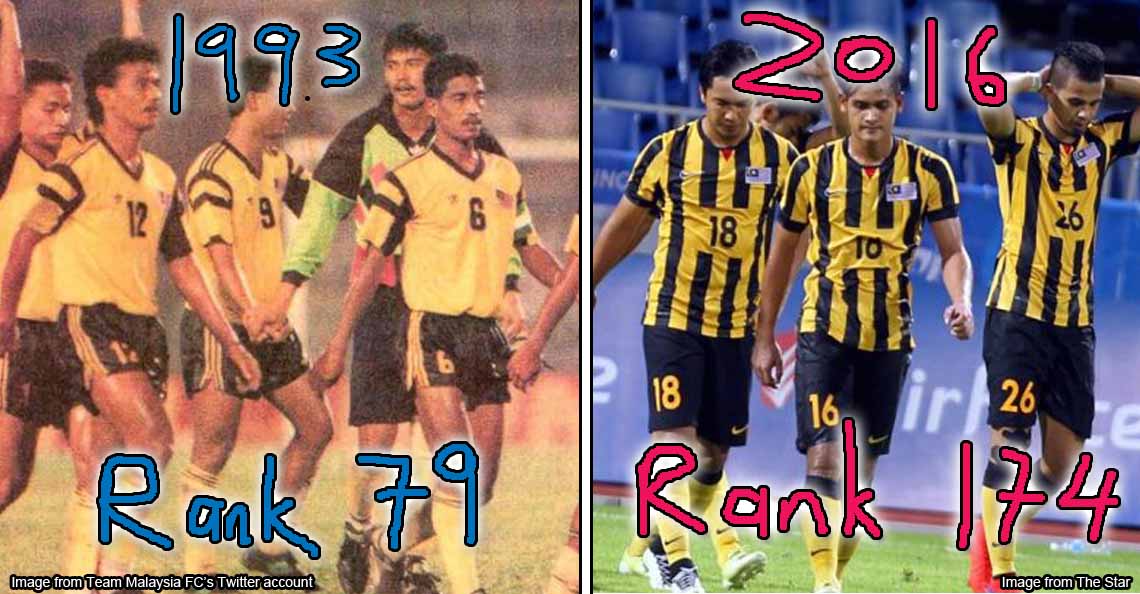
- 1.7KShares
- Facebook1.6K
- Twitter21
- LinkedIn5
- Email45
- WhatsApp73
We’ve all heard about the glory days of Malaysian football in the 70’s and 80’s, and maybe even the recent movie about it. But despite all our success during that time, our highest ever FIFA ranking was in 1993, when we were ranked an astonishing 79th (out of 157)! It was also immediately after achieving this ranking that we started a slow and steady decline.
So much so that today, Malaysia is ranked 174th out of 209 countries registered with FIFA, the lowest ranking ever in the history of Malaysian football.
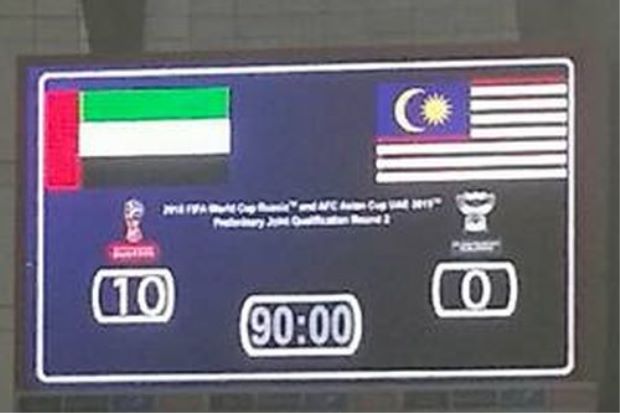
Numerous articles have been written on why this happened, and what we should do to improve the situation. And many of us may even have our own theories on why Malaysian football is so bad. In fact…
Well, among all these problems, one of them may actually be closer related to the rot that any one of these, because recently one article said this.
“Years after we went from being amateurs to semi-professional and professional players, the national team seemed to have taken a turn for the worse. The match-fixing scandal in 1994 did not help. It saw 21 players and coaches sacked, 58 players suspended and 126 players questioned over corruption involving match-fixing.” – Columnist B. Suresh Ram, on NST
The numbers also differ on how many people were actually banned but the Kedah Ex-Footballer Association said that 216 of them were banned.
What happened during the 1994 match-fixing scandal?
For those of you who don’t know the term, match-fixing is when a sports match is played to achieve a semi-fixed or fixed result. For example, someone tells a footballer to make sure his next match ends in a draw. In the game, the footballer’s team is winning 1-0 so he makes a mistake to allow the other team to score. Stuff like this is good money for bookies, but bad for any sport for general it makes games predetermined, which undermines the very core of sport.
And on a more personal note, here’s something a former coach in Malaysia said.
“Yes I have encountered games where we won due to fixing which is hard to spot as you think your team is just playing well. Games we have lost due to “mistakes” by players and in one case an international match where the referee was in control of the fix and not the players.
You feel angry as all the work you do all week is wasted if the game is fixed and its quite possible for a coach to lose his job due to fixed results.” – Former Kelantan and Johor coach Steve Darby, as quoted by The Star
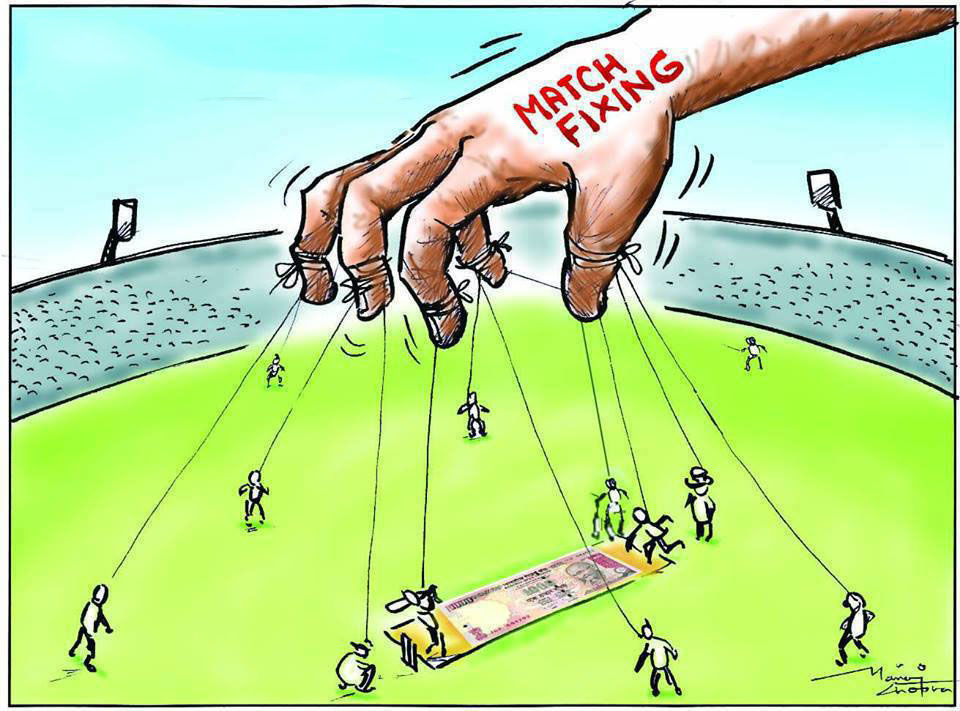
The 1994 scandal was a huge match-fixing scandal where many players were involved in making sure certain results turned out a certain way.
“In Malaysia, the corruption was so bad that following a national police investigation in 1994, one cabinet minister estimated 70 per cent of matches in their leagues were corrupted.” – Declan Hill, on Sydney Morning Herald
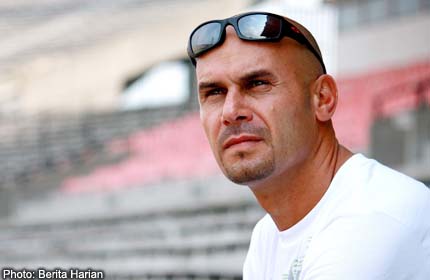
And just to be clear, just because the arrests happened in 1994, doesn’t mean that it only happened that year. In fact, it was so bad that players even feared for their lives if they didn’t listen to the bookies.
“It was the 1992 season. We had not followed the bookies’ instructions for two games. The moment they lost, they warned us with guns.” – Former Perak state player P. Ravindran, as quoted by The Star
But players and coaches getting arrested and banned wasn’t the only thing to result from this scandal. Back then, Malaysia and Singapore football teams actually played in the same league. But when this scandal blew open, both started blaming the other and eventually the league disbanded.
But that was back then, why is Malaysia still so bad after so long?
Well, many people say that the scandal was so bad that the effects are still felt today.
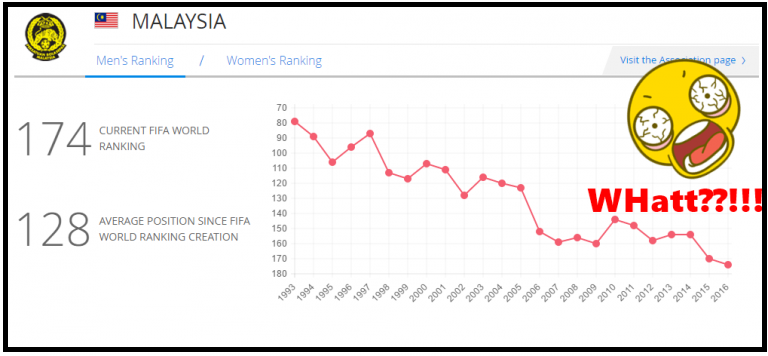
It was reported that among the players suspended, a number of them were among Malaysia’s best. Among these names were national team players like:
All of whom we found to be mentioned as national team players at some point in time prior to the scandal. The bannings eventually led to a number of embarassing football results because our the players that were left behind simply weren’t the best our country could offer.
The next generation were not ready to step up but mediocre players were promoted to M-League (Malaysian league) teams and the result was one debacle after another for the national team, including a 1-0 defeat to Laos in the 1997 Sea Games in Jakarta. – Columnist Vijesh Rai, on NST
We were on a decline. But surely after getting rid of all the match-fixers we could recover eventually right? Wrong, because match-fixing hasn’t stopped!
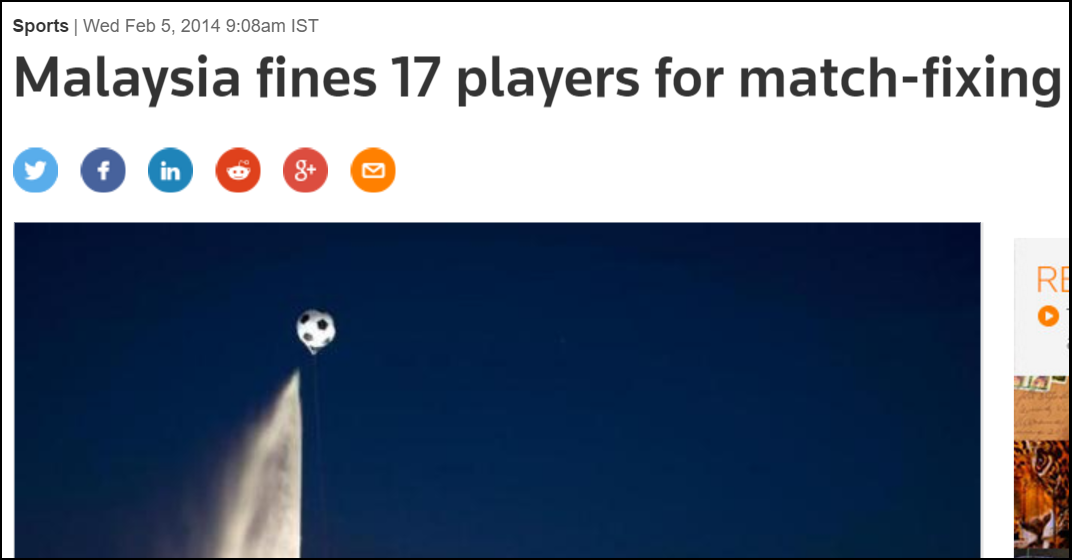
In 2014, it was reported that a WHOLE TEAM in a lower league of Malaysian football had been fined RM5,000 each for match-fixing. This came after another 5 players, and 3 officials had been banned for life the December before. And the Football Association of Malaysia (FAM) had a reason as to why some were banned and some were merely fined.
“The players have pleaded guilty and appealed for leniency. So, we decided to fine them because they fixed the matches under duress.
The players wanted to report to the authorities but feared for their safety. In fact, some of the players were beaten up for not following the orders of the bookies.” – FAM disciplinary committee chairman Datuk Taufek Abdul Razak, as quoted by The Star
So for many of them, you either throw away the game, or the bad guys will come and throw stuff at you. And that means that match-fixing is still a huge problem in Malaysia, to the point that even Youth and Sports Minister, Khairy Jamaluddin has said that Malaysian football is still shackled by it.
Some of our match-fixers have even gone overseas to fix matches!
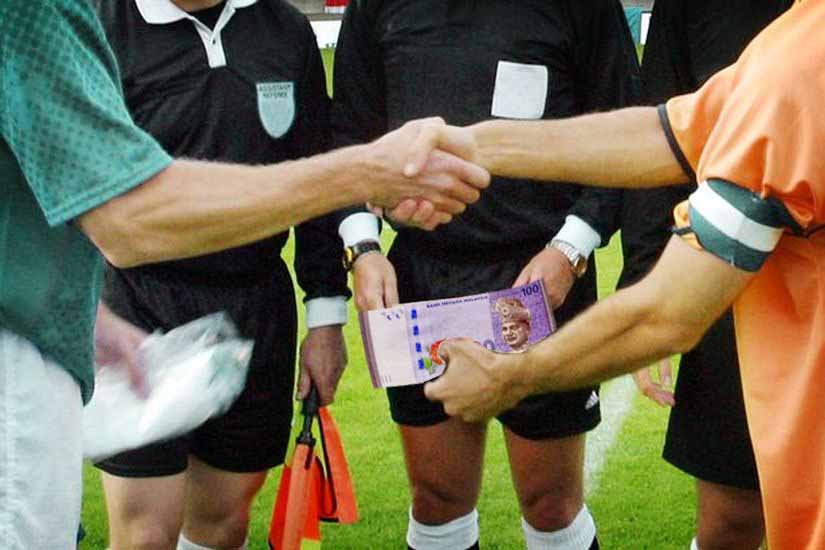
Match-fixing isn’t a problem specific to Malaysia. It’s all over the world. Back in 2006, the big Italian team Juventus was relegated to a lower division and stripped of their last 2 titles because of match-fixing.
In regards to all that we’ve mentioned above, it’s not surprising that Malaysia has match-fixing. But what if we told you that Malaysia is actually a big player in match-fixing WORLDWIDE?
“Many of the people who fixed football matches in Malaysia and Singapore have gone around the world and fixed games in dozens of different countries and leagues.” – Declan Hill, author of international bestseller ‘The Fix: Soccer and Organized Crime’, on his website.

According to this Declan fler, the whole of Asia has a problem with match-fixing, but he claims that match-fixers in Malaysia and Singapore are the ones travelling the world to fix games. In fact, a Singaporean by the name of Wilson Raj Perumal has even been described as ‘The man who fixed football’.
“Malaysian match-fixers were not stopped in 1994. They decided to keep local fixing under the radar and spread their activities throughout the world [instead], where the profit was much more lucrative.
If there was a gold medal for football match fixing, Malaysia would win it.” – Declan Hill, as quoted by Free Malaysia Today
Update: CILISOS reader Daniel Khong informed us of something that happened in English football known as the Floodlights Affair. Back in 1997, 4 men (2 Malaysians, 1 Chinese national, and a stadium security guard) were found guilty of trying to fix matches involving prominent teams like Arsenal and West Ham by cutting out power to the stadium floodlights, the first ever confirmed incident where Asians tried to fix matches on British soil.
But what’s more interesting is that it was alleged that the whole thing was financed by Paul Phua, Malaysia’s (sorta) ‘God of Gambler’.

FIFA even pitied us so much they gave us free stuff to fight match-fixing
The Star recently reported that FIFA recently decided to allow us to use something of theirs known as the Early Warning System (EWS) for absolutely no charge!
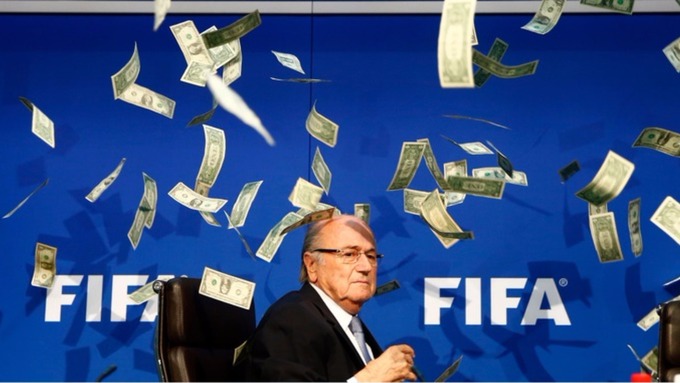
The EWS is not a software, nor is it a machine, but a system run by an independent party to watch out for match-fixing on behalf of FIFA.
As a central aim, Early Warning System GmbH (EWS) looks to protect football matches in all FIFA tournaments by monitoring and analysing the international sports betting market and through comprehensive reporting to FIFA. EWS also carries out match monitoring on behalf of third parties both within and outside of football. – fifa-ews.com
We don’t know how much the system costs, but the CEO of the company that runs the Malaysian League has said it’s not cheap. It’s not mentioned why was FIFA so generous, but at the moment no one seems to be complaining.
But more probably needs to be done to fix our match-fixing problem

Recently FAM lifted the ban on 84 players from the 1994 scandal, something that was condemned by many people. But others also say that it’s fair to give them a second chance because 22 years on, the practice of match-fixing is still rampant, if not worse, and it would unfair to continue to punishing them when so many others get away with it, people that you can see doing it in broad daylight.
“Fixers will bravely come to you and ask you to fix the match. Some of them have agents in the stadium during a match.
If the stadium is not full, In four corners of the stadium, you will see four different man with earphones on, wearing four different caps. If the game is packed, then they will meet the players personally and fix it.” – Former coach Steve Darby, as quoted by The Star
The coach above also added that there is no simple answer to our match-fixing problem. But he is of the opinion that in the long term, the answer would be to educate the people. He believes people in the football scene should be educated on values and ethics, combined with harsh punishments for anyone involved in match fixing.
But maybe the best way to combat match-fixing is something that everyone needs to combat together. Yes, even the fans. Because at the end of the day, the ones that are taken advantage of the most isn’t the players, or coaches, or officials, but the fans who love their football.
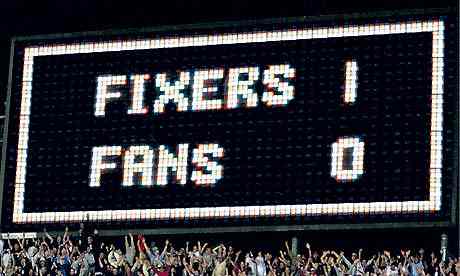

- MSIAN FOOTBALL IS SO BAD, THIS FAN IS GIVING OUT FREE BOOKS ON IT
- MSIA AMONG ASIA’S BEST IN BLIND FOOTBALL? HOW DO THEY EVEN PLAY?
- 3 WAYS THIS PINK KELANTAN TEAM CAN REVIVE MALAYSIAN FOOTBALL
- 1.7KShares
- Facebook1.6K
- Twitter21
- LinkedIn5
- Email45
- WhatsApp73
